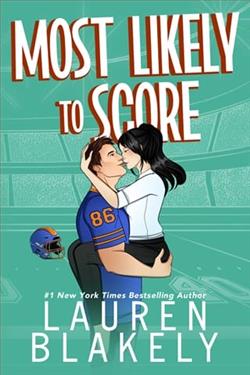Page 81 of Delta Force Defender
Isaac found himself rubbing at his chest as if he could calm those alarms still kicking up a fuss inside him.
He tried to tell himself it was anticipation, the way it usually was as a mission commenced. But he couldn’t fool himself.
“She’s walking,” he said into the comm unit.
Isaac watched Caradine walk down one block, then into the next. He would know her walk anywhere. No matter what name she used. Or how she colored her hair. He would know that lazy amble that hinted at the toughness underneath. The long, muscled legs that had been wrapped around his waist last night. And the way she tipped her chin up as she walked, daring the people passing by to look at her.
Some did. Some didn’t. But Isaac confirmed that he was the only one on the street who didn’t look away.
Inside the bar, Jonas was drunkenly overexplaining the intricacies of football in a belligerent tone, growing ever more agitated. Isaac had seen this show before. Jonas, usually so still and watchful, vibrated with wild, erratic gestures, and he never stood still. He rocked this way and that, as if at any moment he might tip himself off his feet altogether.
People who’d stood next to him in his drunken state usually failed to recognize him when he came around later, no longer in character, and asked them questions about what had occurred in his usual stark, cold way.
“I have eyes on the prize,” Blue said. “She’ll be at the door in approximately two minutes.”
Templeton laughed uproariously, which was his affirmative.
“Moving into position,” Isaac replied.
He pulled away from the curb, headed around to the back of the bar. Despite the flashes of gentrification he’d seen during their initial canvas, this particular block might as well have been stuck in the ’70s. This was a stretch of chain-link fences and cracked sidewalks, not a place where tourists came to wax rhapsodic about the rich tapestry of American history. There were the typical Beantown bricks here, too, but they were old and weathered and crumbling in places. No one had bothered to restore them.
Sharkey’s stood like a beacon to a very specific Southie past. Back when this neighborhood had been nothing but working-class Irish Catholics and the people who preyed upon them. The myth of Sharkey’s was that it was a safe space for Boston’s tough guys to interact, though the truth had usually been far more bloody.
Isaac had studied city-planning drawings of the bar itself and knew its layout backward and forward. Thanks to several stings over the years, and Oz’s ability to help himself to all kinds of files that shouldn’t have been accessible, he even knew a great many of the regulars without having to set foot inside. The current owner was an innocuous man called Peter Mullen, who was almost certainly a front. Or a patsy.
When Caradine had done no more than call this place, there’d been a thug tailing her within hours. Now she was walking inside and announcing her true identity.
His gut didn’t like any part of this. If he’d had all these alarms going off in him at any other time, Isaac would have called a stop to this op before it started.
But for the first time in as long as he could remember, he wasn’t certain about what call to make here. He honestly couldn’t tell if it was emotion or experience that was causing the commotion inside him.
He figured he could blame her for that, too. And would, once they survived this.
“She’s walking through the door,” Blue reported.
Isaac found his vantage spot exactly where he’d expected it, again thanks to Oz’s preliminary work from Fool’s Cove. He pulled the SUV in behind a Dumpster and left the engine running. He switched the comm unit from the car speakers to his headset and then held his phone up to his ear in case anyone happened by. Since a dodgy alley behind a notorious bar was really not the place a random, well-intentioned person was likely to sit around in for the hell of it, he should probably look like he had a reason to have pulled over here.
He didn’t hold his breath, because he was a freaking professional, but part of him expected something terrible to happen. Right now. Caradine to disappear, maybe, somewhere between the street and the door to the bar.
Jonas was halfway through a dissertation on the Patriots, slurring wildly.
“She’s in,” Templeton said in a low voice.
Isaac knew he would have done that while lifting his drink to his mouth. If anyone was watching him, it would look like he was muttering at his drunk friend.
“Hi there,” Caradine said brightly into her own mic, and everything in Isaac tensed further. Because she sounded different again. Not as edgy. As if she were trying to sound brave when she wasn’t.Julia, something in him whispered. She was trying to sound like Julia. “I’m hoping you can help me.”
“I think you walked in the wrong bar, girl,” came a thick, rough, unfriendly voice that sounded like too many cigarettes and the worst of South Boston. “I was you, I’d walk back out.”
“This is definitely the right bar,” she replied, sounding wholly unfazed. And Isaac could almost see the way he knew she would be standing. Her hands on her hips, her head tilted to the angle that made her look the mostunbothered, her blue eyes bright with amusement. “I’m Julia Sheeran. And I have a message for whoever came after my father in Maine a couple of weeks ago.”
There was a snort. “Do I look like your voice mail?”
“Maybe you’ve heard of my father,” she said brightly. “Mickey Sheeran.”
“I heard of Mickey Sheeran,” the bartender replied. He coughed. “Mostly I heard that he was dead.”
“I was dead, too,” Caradine said. “But look at that. Here I am anyway.”















